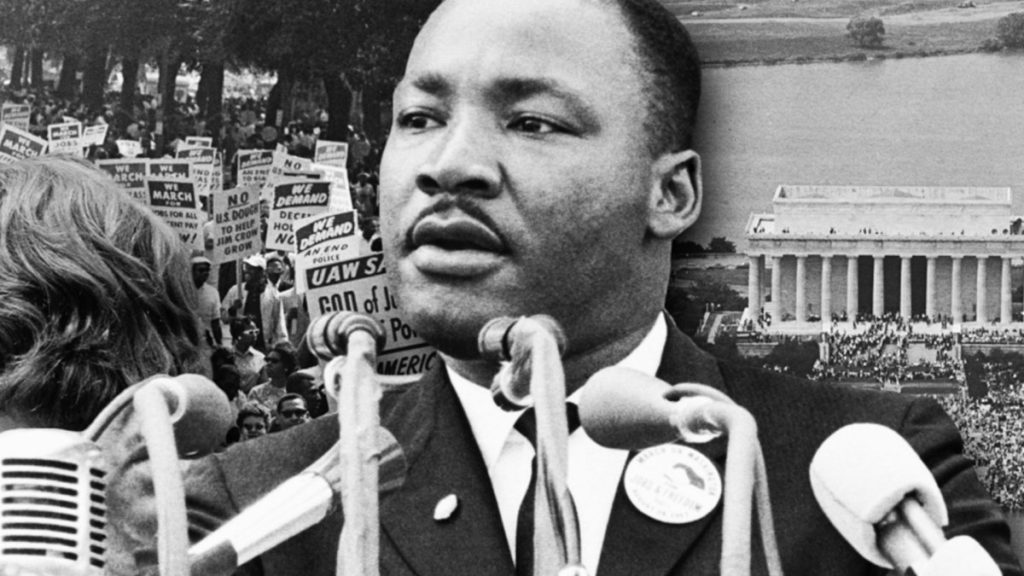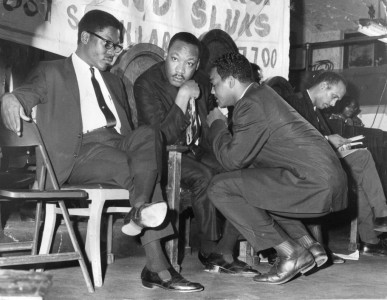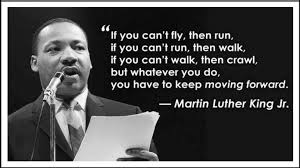As we commemorate Martin Luther King’s birthday and enter Black History Month, it is timely to consider what lessons we can learn from Martin Luther King and apply to schools and school leadership. After all, each educator is transforming minds, communities, and opportunities for the students and families they serve.
1. A vision drives everything.
Martin Luther King, Jr’s most famous speech is his I Have a Dream speech. Part of what is memorable about this speech is his articulation of a powerful vision. Where do we want to be? What does the future of our school and community look like? Harvard Business Review reported that second to honesty, vision is the attribute most desired for a leader[i]. A vision is what everything else pours from.

2. There is no one lone hero.
In education, we are used to taking so much on ourselves. We buy supplies for students, create plans for kids, and feel the weight of the world on our shoulders. We don’t always feel like we can rely on the others – but the reality is we must. Though Martin Luther King, Jr. was the face and spokesperson of the movement, there were thousands – in fact hundreds of thousands – who played a role in this movement. The national movement he led was composed of smaller movements of cities that required leaders in those individual cities. And a leader can only lead when there are followers. So in schools we have to release ourselves from single-heroism and rely on a larger and broader community.
3. There is a role for everyone.
Part of why there could be so many involved in the Civil Rights movement was because it included a diversity of roles. Martin Luther King, Jr. led and spoke – but there were others who cooked and fed meals, others who wrote speeches, others who mapped out march paths, others who marched. College education wasn’t a prerequisite to participation, race wasn’t a prerequisite, neither was status or money. Willingness was the prerequisite. There were so many skills and roles required – leading, planning, walking, cooking, singing – and when you are taking on work to improve lives you need to create a space for every gift and talent.

4. We can learn from others who came before us.
Martin Luther King, Jr. is well-known to have borrowed from Mahatma Ghandi’s non-violence movement. He also learned from professors and mentors – like Howard Thurman, his professor at Boston University and Benjamin Mays, President at Morehouse College[ii]. As an educator, who informs your philosophies? From whom do you get mentorship? Friendship? Networks? Thoughts? They will have the wisdom, encouragement, and perspective that you will need
5. You don’t have to agree with everyone working alongside you.
There were many spaces and places where Martin Luther King, Jr. and his colleagues disagreed. They were passionate – and that passion led to disagreements. Their passion and love kept them at the table. Parents are a great example of a group who may not always agree with teachers or school leaders. If you can come to a general consensus about shared desires for outcomes, you can figure out how to learn and grow together and come up with even better plans on the back-end.
6. Issues aren’t singular.
In Martin Luther King, Jr’s last years, right before his death, he was tackling other issues – poverty and war. We know that our kids walk in with many identities and the complexities of the world on them. As much as we’d love schools to be places where we can just focus on teaching and learning, we know schools are so much more. Every realm of society – isms, socioeconomics, the environment – all impact our kids and their families. We must be able to see the interwoven nature of our kids and families’ lives – and figure out what role we should have as school leaders and educators to maximize the educational opportunities students and families have given those realities.

7. We must be advocates
This is probably the hardest thing to figure out. As complex organizations with multiple needs – kids, parents, teachers, staff and leaders, and the community – it is true that at times there are competing needs and priorities. Figuring out what to advocate for and how is tough. What we should all be able to agree to is that we want to remove as many unnecessary barriers to high quality education for kids as possible; we want to give teachers and staff the praise, feedback, and dignity they deserve; and we want to equip students and families to know what a great school looks like and advocate for cities and states to be full of great schools
[i] To Lead, Create a Shared Vision, January 2009, James Kouzes & Barry Posner
[ii] 5 Men Who Inspired Martin Luther King, Jr. to be a Leader, ThoughtCo., December 20, 2017, Femi Lewis


